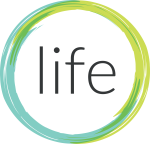9 Core Counselling Skills

What are counselling skills?
Counselling skills are a set of abilities and techniques used by trained professionals to support individuals in dealing with their personal, emotional, and psychological issues. These skills are employed in various settings such as therapy sessions, support groups, and even everyday conversations.
The primary goal of counselling skills is to create a safe and empathetic environment in which individuals can explore their feelings, gain insights, and develop strategies to improve their emotional well-being.
Counselling skills can be broken down into nine overlapping techniques, which you can learn in or out of university. And it’s not just aspiring counsellors who can make use of these skills. Teachers, nurses, parents, HR… anyone can use them to create a safer, kinder, more responsive environment.
Contents:
Skill 1: Unconditional Positive Regard
Unconditional Positive Regard is the skill or a way of being to accept the client as they are without judgement, regardless of what the client says or does, without any conditions.
Unconditional positive regard was expanded and popularised by the humanistic psychologist Carl Rogers in 1956, the concept was initially developed by Stanley Standal in 1954.
Skill 2: Empathy
Some people are more naturally empathetic. Others find it more of a challenge, especially if the person you’re talking to has had a very different life experience.
That’s okay. You can work to improve your empathy.
For instance, you can listen out for someone’s emotions when they are speaking. You can pay attention to their body language and look out for clues about how they’re feeling in the conversation.
Empathy is about walking with your client or being in their shoes when they explore their grief or anger etc.
Very well mind has a great page on empathy, including a list of tips to help you practice this essential skill.
Skill 3: Genuineness

Being congruent or genuine in a therapeutic interaction is really important since a client will be picking up on your body language.
Congruence, in the context of counselling, refers to the counsellor’s ability to be genuine, authentic, and transparent with their clients.
Rogers’ 3 Core Counselling Skills
The three core counselling skills mentioned above creates a trusting and empathetic connection that the speaker can freely express their thoughts and feelings. This is also known as building a rapport. There are many techniques for building rapport such as: active listening, immediacy, reflection, and a non-judgmental atmosphere.
Skill 4: Active Listening
Active listening requires your full attention, using non-verbal cues, listening to the client’s story, and noticing body language.
Techniques like nodding and using hm hm and mirroring body language, showcase active listening. Active listening within a counselling context requires a deep understanding of the spoken and unspoken signals given by the client together with a deep understanding of their emotional state and issues at hand.
Active listening requires your full attention, showing empathy, reflecting on the client’s story, and noticing non-verbal cues and listening in silence while the client speaks. Listening seems like an easy, obvious skill for a counsellor. Anyone can listen. However, listening requires you to be in silence while the speaker is telling their story. Silence is powerful and therapeutic, and paves the way for deep, meaningful communication.
While you actively listen, you offer the other person your full and undivided attention, showing a genuine interest in their thoughts and feelings. You can show this through eye contact, open body language, and a sympathetic and responsive countenance.
In some ways, active listening is an umbrella, encompassing many of the other core counselling skills, such as empathy, reflection and unconditional positive regard.
You might be a parent or a support worker, a teacher or a certified counsellor – active listening should be a vital part of your skillset. It builds stronger connections, fosters trust and encourages people to explore their problems more deeply. Active listening helps build a strong connection, fosters trust and encourages clients to explore their issues more deeply.
Non-verbal Communication is actively listening
We’ve mentioned nonverbal cues before. Gesture, tone of voice, posture…These give you a glimpse of someone’s emotional experience.
They also provide context for spoken words. You might be a counsellor whose client is struggling to express themselves, or a parent with an uncommunicative teen. Their body language and tone of voice can contradict, reinforce, or add nuance to what they’ve said, giving you a much better idea of their emotional state.
Nonverbal communication can include:
- Eye contact
- Facial expression
- Posture
- Gesture
- Tone of voice
- Appearance
- Space
Responding to the other person’s signals requires genuiness, empathy and sensitivity. Once you’ve correctly identified them, you can acknowledge them or steer the conversation towards them.
Non-verbal communication can be key to understanding your clients, and to building a strong, trusting relationship
Skill 5: Reflection
Reflection is at the heart of a good counselling relationship. Done well, it makes the other person feel truly heard and understood.
This is one of the most important counselling skills, where the counsellor listens and then restates the speaker’s emotions, words, or experiences. They might just repeat them, or they might paraphrase to demonstrate the depth of their understanding.
This gives the client feelings of validation and affirmation, which can come as a huge relief.
It also paves the way for thoughtful introspection, helped by reflective open-ended questions like ‘What do you like/dislike about this situation?’
When you use this skill effectively, you create an emotional space rooted in understanding and support, where clients gain insights about themselves.
You also help them to feel empowered to make changes that could transform their lives.
Skill 6: Questioning Techniques
There are other counselling skills that help clients to gain insight – for example, smart questioning.
When you pose an open-ended question, you create an opportunity for a longer response, which articulates more of the speaker’s thoughts and feelings. You can gather information, delve into their perspectives, and encourage self-discovery.
However, you can also use close-ended questions to establish clarity.
You should aim for a balance between open and close-ended questions, favouring open-ended to facilitate exploration and reflection.
Smart questioning goes hand-in-hand with the three core counselling skills, creating a more meaningful counselling experience.
Skill 7: Paraphrasing
Paraphrasing purpose is to repeat what the client said to provide an overview of their story.
Paraphrasing is vital when exploring someone’s feelings or experience, as it helps you both to understand the main points discussed. It also makes it easier for you both to identify and reflect on recurring patterns.
Skill 8: Summarising
Good summarising uses simple language, highlights key points, making sure that nothing important is forgotten when the session comes to a close.
Skill 9: Challenging
This skill is important to identify incongruence with the client’s emotional state, body language and storyline.
Rogers postulated that a state of incongruence might exist within the client, meaning there is a discrepancy between the client’s self-image and the reality of their experience.
Learning and applying the 9 Core Counselling Skills
No matter your setting or your profession, you can create deep and meaningful changes using these 9 Core Counselling Skills.
We offer you the chance to learn with two online courses in counselling skills, created by experienced counsellors and accredited by NCFE.
Our Courses:
You can study completely online, fitting your learning around your schedule, with the option of in-person days to practice to your growing skills.
If you hope to qualify as a counsellor, this is an excellent first step, as the Level 2 & 3 Courses prepare you for the Level 4 Diploma, which qualifies you to being a practicing counsellor.

